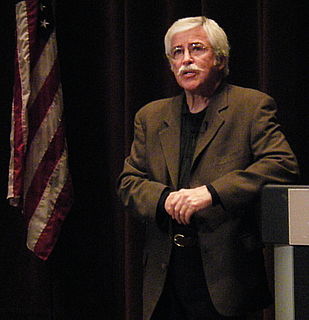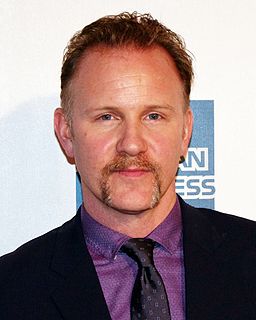A Quote by Tim Green
The human brain is estimated to have about a hundred billion nerve cells, two million miles of axons, and a million billion synapses, making it the most complex structure, natural or artificial, on earth.
Related Quotes
The structure of the human brain is enormously complex. It contains about 10 billion nerve cells (neurons), which are interlinked in a vast network through 1,000 billion junctions (synapses). The whole brain can be divided into subsections, or sub-networks, which communicate with each other in a network fashion. All this results in intricate patterns of intertwined webs, networks of nesting within larger networks.
With its hundred billion nerve cells, with their hundred trillion interconnections, the human brain is the most complex phenomenon in the known universe - always, of course, excepting the interaction of some six billion such brains and their owners within the socio-technological culture of our planetary ecosystem!
During the fiscal year ending in 1861, expenses of the federal government had been $67 million. After the first year of armed conflict they were $475 million and, by 1865, had risen to one billion, three-hundred million dollars. On the income side of the ledger, taxes covered only about eleven per cent of that figure. By the end of the war, the deficit had risen to $2.61 billion. That money had to come from somewhere.
The technology involved in making anything invisible is so infinitely complex that nine hundred and ninety-nine billion, nine hundred and ninety-nine million, nine hundred and ninety-nine thousand, nine hundred and ninety-nine times out of a trillion it is much simpler and more effective just to take the thing away and do without it.
The brain immediately confronts us with its great complexity. The human brain weighs only three to four pounds but contains about 100 billion neurons. Although that extraordinary number is of the same order of magnitude as the number of stars in the Milky Way, it cannot account for the complexity of the brain. The liver probably contains 100 million cells, but 1,000 livers do not add up to a rich inner life.
The brain is really hard to see. The whole thing is very large - the human brain is several pounds in weight - but the connections between brain cells, known as synapses, are really tiny. They're nanoscale in dimension. So if you want to see how the cells of the brain are connected in networks, you have to see those connections, those synapses.
Malaria is a disease that kills one to three million people a year. 300 to 500 million cases are reported. It's estimated that Africa loses about 13 billion dollars a year to the disease. Five dollars can save a life. We can send people to the moon; we can see if there's life on Mars - why can't we get five-dollar nets to 500 million people?
The Doctor: The Fourth Great and Bountiful Human Empire. And there it is: planet Earth at its height. Covered with megacities, five moons, population 96 billion. The hub of a galactic domain, stretching across a million planets, a million species. With mankind right in the middle. [Adam faints] The Doctor: [leans towards Rose, still looking out over the Earth] He's your boyfriend.
The UN special envoy on food called it a 'crime against humanity' to funnel 100 million tons of grain and corn to ethanol when almost a billion people are starving. So what kind of crime is animal agriculture, which uses 756 million tons of grain and corn per year, much more than enough to adequately feed the 1.4 billion human who are living in dire poverty?
OPEC production went from 30 million barrels a day to 33 million. They flooded the market, and it's lost them a lot of money. Look at the Saudis: they just floated a $17.5 billion debt offering, they earlier borrowed $10 billion from a group of international banks; they're selling part of Aramco - they're desperate for money.




































